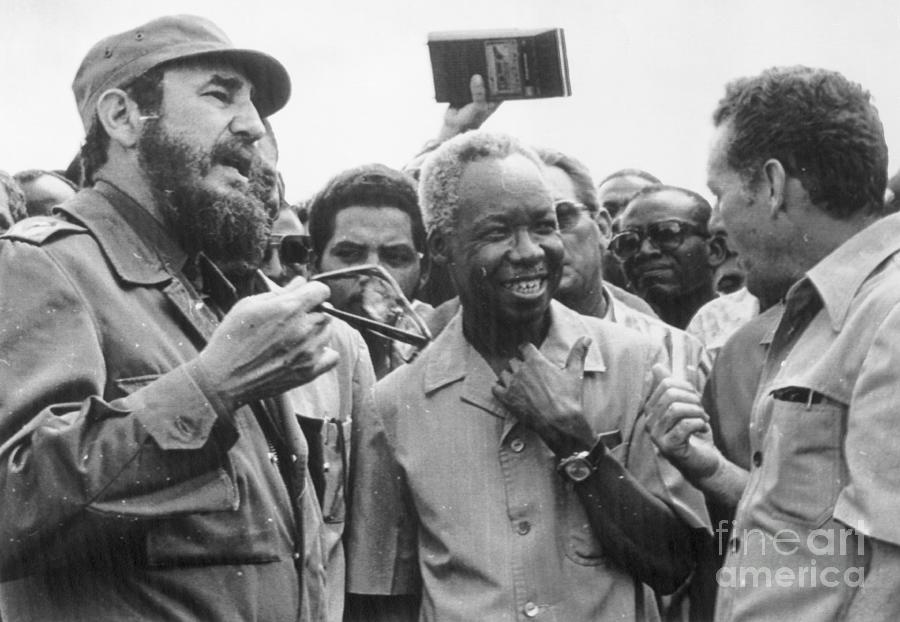Julius Kambarage Nyerere, the first President of Tanzania, is widely regarded as a champion of Pan-Africanism and the architect of Ujamaa. This African socialist philosophy guided Tanzania’s domestic policies during his tenure. Under Nyerere’s leadership, Tanzania played a pivotal role in supporting the liberation movements of several neighbouring countries and exerted considerable influence across the African continent. However, in recent decades, Tanzania’s impact regionally and globally has been perceived to have waned. Several factors have contributed to this shift.
Shift from Ideological to Economic Diplomacy
In Nyerere’s era, Tanzania’s foreign policy was primarily ideological, strongly emphasizing anti-colonialism and Pan-Africanism. Nyerere was a vocal critic of apartheid in South Africa and played an instrumental role in supporting liberation movements in countries like Mozambique, Zimbabwe, and Angola. The government also hosted the headquarters of the Southern African Development Community (SADC), reinforcing its regional importance.
However, the post-Nyerere period saw a shift from ideological to economic diplomacy. With the increasing liberalization of the Tanzanian economy in the 1990s, more emphasis was placed on attracting foreign investments and promoting trade. This shift, while necessary for economic development, has not lent itself to the dynamic, ideological leadership Nyerere embodied, consequently reducing Tanzania’s influence on the continental stage.
Internal Focus on Economic Development
Following Nyerere’s departure, Tanzania embarked on significant economic reforms. The focus turned inward, with a drive towards economic liberalization, poverty reduction, and improvement of social services. While these changes were crucial for domestic development, they resulted in a less assertive role in regional politics and diplomacy.
Changes in the geopolitical landscape have also impacted Tanzania’s influence. The end of the Cold War and apartheid led to new regional power dynamics. Countries like South Africa and Nigeria, with their substantial economic power, have taken up more prominent roles on the continental stage. Simultaneously, the East African Community (EAC), originally a project firmly pushed by Nyerere, was revived but with a more balanced power distribution among member states.
Leadership Styles
Nyerere’s successors adopted different leadership styles. Presidents Ali Hassan Mwinyi, Benjamin Mkapa, Jakaya Kikwete, John Magufuli, and now Samia Suluhu Hassan each had distinct governance and diplomacy approaches, often less assertive and ideologically driven than Nyerere’s. These changes in leadership style have had implications for how Tanzania projects its influence regionally and globally.
Increased globalization has meant that many issues are tackled globally rather than in a regional or continental one. While Tanzania still plays an active role within organizations like the United Nations and the African Union, the nature of influence has changed. It’s less about leading liberation movements and more about contributing to global discussions on climate change, sustainable development, and peacekeeping.
While Tanzania’s influence has shifted since the presidency of Nyerere, several strategies could be employed to reestablish the nation’s regional and global influence, potentially sparking economic development.
Leveraging Strategic Geography
Tanzania’s location is a significant asset. It shares borders with eight countries and has access to the Indian Ocean. By investing in modern, well-connected infrastructure, Tanzania could establish itself as a regional hub for trade and logistics, drawing in international investment and creating jobs.
Tanzania can enhance its influence by being more proactive in regional bodies such as the East African Community (EAC) and the Southern African Development Community (SADC). This could involve championing regional integration initiatives, harmonising policy, and promoting regional trade. A stronger voice in these bodies could give Tanzania an economic boost and more significant regional sway.
The world is increasingly driven by knowledge and innovation. By investing in quality education and fostering a culture of research and development, Tanzania can create a skilled workforce capable of driving economic growth and commanding global attention. Focusing on technology and entrepreneurship could also lead to home-grown solutions to local and global challenges, enhancing Tanzania’s international standing.
Enhancing Good Governance and Rule of Law
Stable, democratic countries often wield more influence on the global stage. By strengthening its democratic institutions, ensuring transparency and accountability in governance, and upholding the rule of law, Tanzania can enhance its international reputation. This, in turn, can boost investor confidence and attract more foreign direct investment, driving economic development.
Tanzania has a rich cultural heritage and is home to some of Africa’s most iconic landmarks, such as Mount Kilimanjaro and the Serengeti National Park. By promoting its cultural and natural resources, Tanzania could attract more tourists, stimulating its economy. Additionally, promoting Kiswahili, one of Africa’s most widely spoken languages, could be a tool for cultural diplomacy, boosting Tanzania’s influence in the region.
Developing a robust and diversified economy is vital to gaining influence. Rather than relying heavily on agriculture, Tanzania could focus on developing its manufacturing sector and service industries. This diversification, coupled with sound macroeconomic policies, would make the economy more resilient, attract foreign investment, and improve Tanzania’s standing on the global stage.
While the nature and extent of Tanzania’s influence in Africa have changed since the time of Nyerere, it’s worth noting that power isn’t just about overt leadership or dominance. Tanzania continues to contribute to the African continent in its ways, though these might be less ideologically charged or visibly assertive than in the past.
The changing dynamics reflect the evolving needs of the region and the global community. It’s, therefore, essential for Tanzania, like other nations, to continue finding its role within these shifting contexts to contribute to the continent’s ongoing growth and development effectively.
Read more political insights here.

